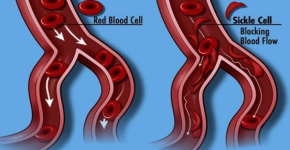Postnatal care, often referred to as postpartum care, is a critical period that begins immediately after childbirth and extends for about six weeks. This phase is crucial for the recovery and well-being of the mother and the newborn. Adequate postnatal care ensures the physical, emotional, and psychological health of both, laying the foundation for a healthy start to life.
In this blog, we’ll delve into the essentials of postnatal care, focusing on the health needs of new mothers and their babies.
Why is Postnatal Care Important?
Postnatal care helps address several key aspects:
- Physical Recovery for the Mother
After delivery, a mother’s body undergoes significant changes as it returns to its pre-pregnancy state. This period involves healing from delivery (vaginal or cesarean), managing postpartum bleeding, and addressing any complications like infections or blood clots. - Emotional and Psychological Well-being
Hormonal changes after childbirth can lead to emotional shifts, including baby blues or postpartum depression. Postnatal care provides support and guidance to help mothers cope with these challenges. - Newborn Care
The first weeks of life are critical for a baby’s development. Postnatal care ensures that newborns receive proper feeding, monitoring for jaundice, vaccinations, and screenings for congenital conditions. - Breastfeeding Support
For mothers choosing to breastfeed, postnatal care includes assistance with latching techniques, managing breastfeeding challenges, and understanding the nutritional needs of the baby.
Key Components of Postnatal Care
1. Regular Health Check-ups
- Schedule regular visits with a healthcare provider to monitor your recovery and your baby’s health.
- Discuss any symptoms such as excessive bleeding, fever, or pain, which may indicate complications.
2. Nutrition and Hydration
- A balanced diet rich in iron, calcium, protein, and vitamins is essential for recovery and milk production.
- Stay hydrated, especially if breastfeeding.
3. Rest and Recovery
- Sleep may be scarce, but resting whenever possible is crucial for healing.
- Accept help from family or friends to manage daily tasks and focus on recovery.
4. Emotional Support
- Open communication with loved ones about feelings and experiences can help combat feelings of isolation.
- Seek professional help if feelings of sadness, anxiety, or depression persist.
5. Newborn Care Practices
- Keep the baby’s umbilical cord stump clean and dry.
- Maintain skin-to-skin contact to foster bonding and regulate the baby’s body temperature.
- Follow your healthcare provider’s advice on feeding schedules and vaccinations.
Common Challenges During the Postnatal Period
- Postpartum Depression
Affecting about 1 in 7 women, postpartum depression requires timely intervention. Recognize the signs, which may include persistent sadness, loss of interest, or difficulty bonding with the baby. - Breastfeeding Difficulties
Latching issues, low milk supply, or pain can discourage breastfeeding. Lactation consultants can provide guidance and support. - Physical Discomfort
Perineal pain, cesarean incision healing, or engorged breasts are common. Over-the-counter pain relief, warm compresses, and gentle exercise may help.
When to Seek Help
Postnatal care involves proactive measures, but some signs require immediate medical attention:
- Heavy vaginal bleeding or large clots
- Severe headache or vision changes
- Persistent fever or chills
- Difficulty breathing
- Extreme fatigue or feelings of hopelessness
Conclusion
Postnatal care is a vital aspect of maternal and newborn health. By prioritizing physical recovery, emotional well-being, and newborn care, new mothers can navigate this transformative period with confidence. Remember, reaching out for support and guidance is a sign of strength and a step toward a healthy future for you and your baby.
If you or someone you know is expecting or has recently given birth, encourage them to seek comprehensive postnatal care. It’s not just about recovery—it’s about thriving in this new chapter of life.
Have questions or need guidance on postnatal care? Reach out to your healthcare provider or a support group in your area.









